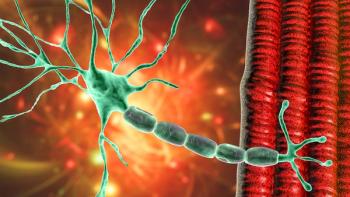
GSK, Verily to Set Up Bioelectronics Joint Venture
Galvani Bioelectronics will be based in Stevenage, UK, and headed by Kris Famm, GSK's vice president of bioelectronics R&D
GSK and Verily (formerly Google) Life Sciences LLC plan to establish a joint venture, Galvani Bioelectronics, to enable the research, development and commercialization of bioelectronic medicines. This new scientific field uses miniaturized, implantable devices to treat various illnesses. The devices work by modifying the electrical signals that pass along nerves in the body, including the irregular or altered impulses that occur in individuals with chronic illnesses. GSK has been active in this field since 2012, and has evaluated bioelectronics treatments for such chronic diseases as arthritis, diabetes and asthma.
Galvani Bioelectronics will be headquartered within GSK’s global R&D centre at Stevenage in the UK, with a second research hub at Verily’s facilities in South San Francisco. It will initially employ around 30 expert scientists, engineers and clinicians, and will fund and integrate a broad range of collaborations with both parent companies, academia and other R&D companies.
Kris Famm, GSK’s vice president of bioelectronics R&D, has been appointed president of the new company. Famm has pioneered work in both large and small molecule drug discovery and worked for a decade developing and delivering R&D strategy with a recurring focus on emerging technologies. He has co-designed and led GSK’s exploration of bioelectronics. A seven-member board, chaired by Moncef Slaoui, GSK’s Chairman of Global Vaccines, will also be appointed and will include Andrew Conrad, CEO of Verily.
“Many of the processes of the human body are controlled by electrical signals firing between the nervous system and the body’s organs, which may become distorted in many chronic diseases. Bioelectronic medicine’s vision is to employ the latest advances in biology and technology to interpret this electrical conversation and to correct the irregular patterns found in disease states, using miniaturised devices attached to individual nerves. If successful, this approach offers the potential for a new therapeutic modality alongside traditional medicines and vaccines, said Slaoui.
The deal is expected to close before the end of 2016. GSK will hold a 55% equity interest in the new company and Verily will hold 45%.
Source:
Newsletter
Stay at the forefront of biopharmaceutical innovation—subscribe to BioPharm International for expert insights on drug development, manufacturing, compliance, and more.




